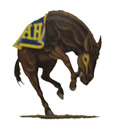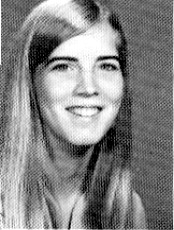
Susie Stanbery

 |
Susie Stanbery |
 |
 |
Carol Sue Stanbery Craw December 18, 1952 ~ August 10, 1993
Survived by their son, Travis Craw |
Remembering Susie ... Blind Faith: For some reason I kept a concert ticket from the “1969 Blind Faith”
concert, the last concert I attended with Susie and have carried it in my
wallet all these years. Somehow I wound up with her ticket stub with the
things she wrote on the back about things she had to do. She’d get
her mother’s car and pick up as many friends as possible and off we’d
go to do the errands first so that we would have time to go to the Frontier
for a #6 or run to Sill’s for a beanburger.
|
This is an essay I wrote after Susie Stanbery died in an accident on August 10, 1993 ~ Jana Orsinger Together in Bright Darkness A close friend of mine was killed recently, along with her husband, in a helicopter crash. They were returning from a day of snorkeling off the island of Lanai on their way to their home in Honolulu when something malfunctioned with the rotor and they plummeted into the ocean just 200 yards out from the shore near Diamond Head. Hundreds of people witnessed the accident. When the fire department divers reached the submerged and shattered machine, my friends were still strapped into their seats, dead on impact from multiple internal injuries. She was forty. Here in Texas we, her childhood friends, tried to piece together the facts from sketchy messages left on various answering machines, calls to acquaintances in Hawaii, and eventually newspaper clippings. Front page news in Honolulu for three days. I did hear from my friend's mother before she left San Antonio for the islands, but she could only suck back tears and agonize over her daughter's orphaned son, age seven. I couldn't bear to ask her for details. I did not go to Hawaii. I could have. I had the money and could have taken the time. But my own daughter, who turned twenty-one that April, was coming home for the first time all summer and we had planned a trip. A daughter could die, suddenly, in an accident. I wanted to be with mine now, today, while I could. So I chose to stay in Texas. But it cost me to miss my friend's funeral. Almost three weeks after my friend died, the tears finally came. All day, off and on, for two days. But before they came I felt strange, deeply depressed one day, and vaguely crazy the next, as if all of life were merely a giant play, a theater production that seemed banal to me, stupid, pointless, boring, and crude. I began to feel unsure of myself. Would I be able to drive my car, or would I pull out suddenly in front of an oncoming Suburban full of kids and a frazzled mom? If an acquaintance stopped me at the video store and inquired, "How are you?" meaning only to be polite, would I say, "Fine, and you?" or would I throw my rented copy of Toto le Hero at them and run off without a word? I could feel my predictability ebbing away. One Sunday, the tears came, like rain out of growling thunderheads. The first drops fell during the sermon at church, which I barely remember now, but had to do with the difference between the suffering of masochism and the suffering that is encountered on the way of the cross. "Are they the same?" asked our priest, rhetorically. "No, they are not. Masochism is voluntary suffering because one likes to suffer. The way of the cross is unwanted suffering freely embraced for the sake of a higher end."* Yes, I thought, for the sake of love, which draws one near the heart of mystery where there are no easy answers. I met Susie in elementary school. We were in Mrs. Cherry's sixth grade class together. Budding adolescents, we roamed the streets after school and on weekends, went to Sommer's drugstore for Fizzies, a carbonated drink with a choice of orange or lime sherbet in it, or to the Fin and Feather to split a hot fudge sundae. We ran in huge packs in those days, but she was my best friend. In junior high I stole Susie's steady boyfriend. She wasn't at Bobby's birthday party that night. Her boyfriend was. So was I. When he called her later to break up, she was putting Curl Free on her hair. "Fine," she said. "I gotta go." And hung up, as if she didn't care. Then he called me. He said she didn't seem upset, so I never felt much guilt about it. Still, it was a betrayal. February 3, 1967. He and I spent the next nine years together. He fathered my only child. In high school we ran in different crowds. She was wild, I was cautious. Behind the scenes, both of our families were coming unraveled, hers from her sister's death from a rare blood infection, mine from my brother's dive into drugs and his subsequent hospitalization. Our parents were essentially gone while we did our best to grow up. She turned to people and experiences I didn't know. I turned to the boy I had taken from her years before. During college at UT-Austin, our paths occasionally crossed. She tried to rescue me from my consistency, my responsibilities. I had married my boyfriend right out of high school, and we had a daughter, but were separated. One morning, early, she climbed in through my daughter's bedroom window, came to my bedside, and woke me. She wanted me to go folk dancing with her, a weekend workshop. I still remember the haunting melody of one Hungarian circle dance, but have no memory of why she climbed in through the window instead of knocking on the door. She was like that. Spontaneous. I think she thought I was boring or, perhaps, too serious. I poured over Carl Jung, studied Eastern mysticism, and agonized over the meaning of life and death, while she lived, tasting everything the early 70's had to offer. She graduated and moved to California. I moved to San Antonio and divorced. I surprised her the next summer by
agreeing to drive with her in the used VW beetle she bought in Texas to
take back to Mammoth Lakes, a ski resort in the Sierra Nevada Mountains.
We drove at night since the engine was air-cooled and it was a hot June.
The first leg took us to Ruidoso where we slept by a pond for a few hours
before driving to Albuquerque. After a rest, we left New Mexico at sunset
and drove west into the deepening red, singing Joni Mitchell songs. By
noon we were looking down the dizzying drop-off of Hoover Dam. We slept
for a few hours under the oleanders by Lake Mead. That evening we played
the slot machines in Las Vegas before driving through the bare mountains
all night. About 3:00 a.m., while she slept in the backseat, I noticed
we were almost out of gas. The moon was still up, casting shadows on the
winding road. Sleepy and hypnotized by the swaying turns, I fought to
stay on the road, praying that the fuel would last. We pulled into Mammoth
just as the moon vanished behind the mountains. At the bottom of a hill
one gas station stood lit up by red, white, and blue neon. "Susie,"
I shook my friend, "we're here." On the mainland and in the islands both my life and hers unfolded like antique linens, fine and fragile. We were both happy. We were both in love. She and her husband eventually had a son, after suffering one miscarriage. My husband and I decided to try to have a child, too. And then, one morning, I barely heard the phone ringing through the whirr of the vacuum cleaner. I lifted the receiver to hear a small, sad voice calling my name. "Susie?" I asked, at first excited until I realized in must be 5:00 a.m. in Hawaii. "Why are you calling me?" "Jana," she cried, "I'm hurt bad. I've got the bends. I'm paralyzed from the waist down." Everyone needs someone in front of whom they do not have to be brave. Over the next weeks and months, my friend entrusted me with her fear and loneliness, with her broken heart and broken body. I did not go to Hawaii then, either. But if there is any truth in prayer, any truth in the notion that we are all interconnected, that in some way there is no time, no space, then I was with her in that decompression chamber where she spent most of the hours of each day for the next two months. She got better. Much better. She wiggled her toes, learned to sit up, crawl, walk, drive a car. She went back into the ocean to swim and snorkel. She raised her infant son to boyhood. She and her husband kept their marriage intact and growing, despite the challenges and adjustments. She finished her master's degree in science and returned to teaching. She had hope and vitality. She determined to make a complete recovery. In this time I think her opinion of me changed. I, who had once been too serious and melancholy, became she who understands grief. After all, I was experiencing pain, anxiety, and frustration, too, as my husband and I discovered we could not have children and I watched him disconnect from me, then seem to vanish as if he were a ghost or had walked through Alice's famous looking glass. I could not reach to touch his world. And so Susie and I, each crippled, listened to each other through these years when everything seemed inclined to disappear. Not long ago, the neurologist looked her in the eye and said, "No, you will never get better. In fact, you'll only get worse as you age." This to a woman everyone had said would never walk again! Only this time, she believed him. She phoned me, calling from the deepest place of grief, where few of us ever allow anyone else to come. I closed my eyes. She wailed, "How could anyone who calls himself a healer say that to a person who needs hope to stay alive?" The darkness of her sorrow was bright. I remembered the days of the decompression chamber when I had visited her with light. This was, I knew, another passage. The passage out of hopes and into mystery. She called me one more time before she died in her fall from the sky. In June. Her attitude had changed. She'd decided to forget what the neurologist told her and look into Oriental forms of healing. Once more she began an all out effort. She only had one complaint. "I'm fat!" she exclaimed, which was not true. "All I do is starve all day and then pick up Travis after school and go straight to get a hamburger and french fries. It's terrible! The worst thing I could do!" "What do those foods remind you of?" I asked. She inhaled sharply and answered, "Youth and freedom." This Sunday afternoon, on the fortieth day since Susie died, her Texas girlfriends will gather to hold high the memory of her beauty, courage, intelligence, and untamed vitality. We all went to high school together, but are united to each other because of her. We will make leis of yellow roses. We will bring pictures and tell what we remember. No doubt we will each try to form a collage out of all the stories offered by others, added to those of our own. Who knew her best? Did any of us know her? Albert Schweitzer wrote: We wander through this life together in a semi-darkness in which none of us can distinguish exactly the features of his neighbor. Only from time to time, through some experience that we have of our companion, or through some remark that he passes, he stands for a moment close to us, as though illuminated by a flash of lightning. Then we see him as he really is.** If we are lucky. If we have our eyes open when the lightning flashes. I have been lucky. There have been moments in which my friend and I stood close. I saw her. She, like all human beings, was a mystery. In her case, a fireball mystery. She roared through life. Her energy danced about her like fireworks on a dark Fourth of July. I was lucky. I had my eyes open and saw her brilliant display as she flashed across the sky. But true to form, she lived and died vibrantly, while I, a slow steady flame that may burn yet for many years if no sudden gusts arise, am left to puzzle over the suffering that inevitably comes of loving. We cannot know for certain what is really going on in this life. Since Susie died I have struggled to make some sense of it all, but I can't. Maybe that's why I felt so crazy for a while before grief erupted from my throat, my eyes, my heaving chest. And why life sometimes seems like bad theater to me. Makes me grumpy. I want a refund. Maybe all I know is that she and I matched up somehow, like yin and yang, that her volcanic beauty intrigued me, and that we both said "Yes" to love, despite what it costs. Perhaps that is all of this mystery we can know. And maybe that's enough. Jana
Orsinger * Thanks to The Reverend
Sam Todd High School Interests and Accomplishments 1971 ~ Vocational Industrial Clubs of America, Chapter 710
|